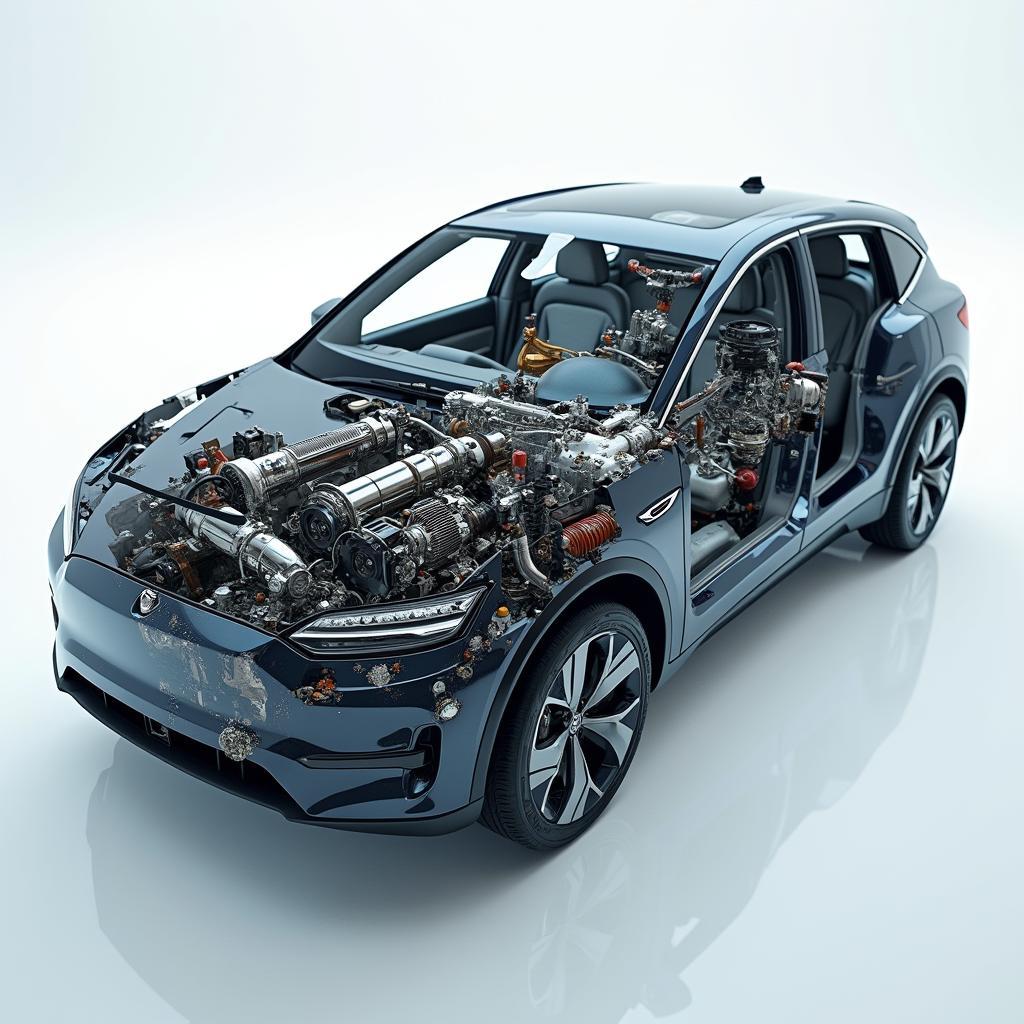Electric cars are becoming increasingly popular, but some potential buyers are still hesitant due to concerns about maintenance. A common myth circulating is that “electric cars require frequent repairs.” In this article, we’ll delve into the intricacies of electric car maintenance and debunk this pervasive misconception.
Electric Car Maintenance: A Different Ball Game
While it’s true that electric cars require a different approach to maintenance compared to their gasoline counterparts, “frequent repairs” is a gross oversimplification. Let’s dissect why:
Fewer Moving Parts, Fewer Problems:
One of the most significant advantages of electric cars is their simplified design. Internal combustion engines (ICEs) have hundreds of moving parts that require regular maintenance, such as oil changes, spark plug replacements, and exhaust system repairs. Electric cars, on the other hand, have far fewer moving parts in their electric drivetrains, eliminating the need for many of these routine services.
Regenerative Braking: Extending Brake Life
Another factor contributing to the misconception about frequent repairs is the traditional notion of brake maintenance. Electric cars utilize regenerative braking systems that capture energy typically lost during braking and channel it back to the battery. This technology significantly reduces wear and tear on traditional brake pads and rotors, extending their lifespan considerably.
Addressing Common Concerns: Battery Life and Electronics
Electric Car Batteries: Designed for the Long Haul
One of the most common concerns surrounding electric vehicles is battery life and the potential need for frequent replacements. However, electric car batteries are incredibly robust and designed to last for many years and miles. Most manufacturers offer extensive warranties on their battery packs, often covering them for at least 8 years or 100,000 miles.
Electronics: Sophisticated Yet Reliable
Electric cars are heavily reliant on sophisticated electronics, and some worry that this complexity might lead to frequent repairs. While it’s true that electronic components can malfunction, advancements in automotive electronics have significantly increased their reliability. Issues with electric car electronics are relatively rare, especially compared to the potential problems associated with complex engine management systems in modern gasoline vehicles.
Conclusion: Electric Car Maintenance is More About Simplicity
The idea that “electric cars require frequent repairs” is a myth. Electric car maintenance is more about simplicity and longevity. With fewer moving parts, regenerative braking, and increasingly durable batteries, electric car ownership often translates to fewer trips to the mechanic and lower overall maintenance costs compared to gasoline vehicles.



